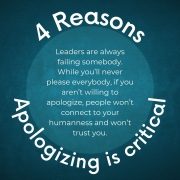Engaging Employees in Economic Uncertainty
The recent economic slowdown has created great uncertainty for businesses and, adding to the pressure, are the debates regarding how much oil and gas companies will be affected and in what way. What we can be certain about is that employers that consciously manage their work culture and employees during times of uncertainty will position themselves to take advantages of opportunities in the face of obstacles.
Why is it business critical for organizations to invest in a great work culture, especially now?
Demographics alone point to a continued trend of labour shortages due to an aging workforce, especially in in-demand occupations.
Many oil companies have long service employees whose experience is deep technically and broad in terms of institutional knowledge and intelligence. Many of these long-term employees will be eligible to retire soon, and statistics show us that as a population ages we see increases in short term vs. long term employment. It is more important than ever for oil companies to have a strong workplace culture to both attract, retain and engage employees to transition their knowledge and experience to the next generation of workers.
Additionally, Statistics Canada stated that in 2011, the percentage of working-age Canadians in the labour force is expected to peak. In other words, beginning in 2012, the number of workers leaving the labour force is already exceeding the number of new entrants and labour shortages continues to be an on-going concern. This trend is expected to continue. Employees, especially those in in-demand occupations, will continue to have choice. Employers need to evaluate the long-term risks associated with an aging workforce, recognizing that the skills and experience they need in the future may not be readily available.
In times of slowing economies, the mantra of leading employers becomes how to stabilize and engage employees in a highly proactive, productive way. The practices of attraction, retention, engagement and how employers manage their culture and employees still apply.
In our experience, there are several shifts in emphasis that will ensure success:
- Engaged employees see themselves as “owners” not “tenants or renters” of an organization. Employers who are dedicated to employee engagement provide them with a framework of accountability, so they know not only ‘what’ they are expected to do but ‘how’ (what behaviours will get them there). Employers who foster a culture of personal responsibility where employees feel a part of the whole (“we” vs “they”) during times of stress can leverage collective intelligence to work through real work challenges.
- Engage employees to make the best use of their skills and abilities. Many employers make the mistake of assuming employees will be happy with just having a job vs. utilizing their strengths in the right job. Keeping people busy is not synonymous with real engagement and productivity.
Engage employees to realize future success – use the wisdom of the many over the ideas of a few. - Involve employees in problem solving to address current business challenges. This approach goes hand in hand with the theme of open communication as employers need to be open about current business challenges in order to be successful in this engagement strategy. It ultimately provides employees a sense of control over their own future and the future of the company. The leading edge employer who adopts this approach will not only attract and retain the best employees but will become highly productive and well positioned for future opportunities when others are struggling to survive.
- Communicate, Communicate, Communicate. Timely, consistent communication of what employers know and especially what they don’t know, removes the ‘cloak of secrecy’ and creates an environment of trust, so that employees are confident that leaders will provide the truth. In the absence of open transparent information employees will draw their own conclusions, often fearing the worst. Effective communication in times of uncertainty is not just about making timely announcements or the distribution of information. Genuine two-way communication that leads to productive employee engagement and mutual trust has a grassroots “water cooler” conversational quality to it. It is about listening, not surveying, paying attention, not getting attention. In many ways, employee engagement is less about the information you provide and more about what you draw out of your employees.
- Employee engagement is also about managing the work culture and environment. Uncertainty is stressful. When people are stressed, they can feel threatened, which often results in behaviors that counter a productive workforce. Therefore, it is important for organizations to be vigilant in reinforcing a mutually respectful workplace during times of uncertainty.
Most companies have spent the last few years trying to find ways to become the “Culture of Choice” and retain and leverage the best in their talent pool. Economic downturns always test employers in this quest. Now more than ever is the time to implement an employee engagement and productivity strategy.
By Janice Clark and Pat Hufnagel-Smith, ©2015 Irvine & Associates, Inc.
Irvine & Associates Inc. provides training and consulting solutions to assist employers with employee engagement by creating a vibrant accountable culture resulting in delivery of real time business results.









